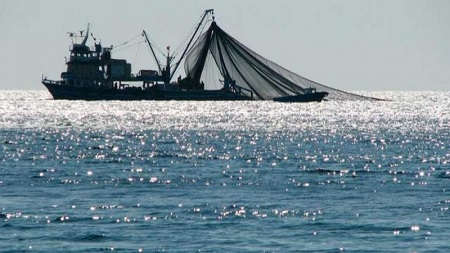Toward a Regional Strategy for Human Rights beyond State Borders

Over the course of two days (6–7 last September), the HIC-HLRN held a virtual workshop in cooperation with the Extraterritorial Obligations (ETO) Consortium, for the Middle East and North Africa region, in order to develop a base of knowledge, regional strategy and capabilities of HIC Members and allies in the region concerned with the human rights obligations to states outside their territorial jurisdiction.
Prior to the holding of the regional workshop, HIC-HLRN and the ETO Consortium conducted a survey in the three languages (Arabic, English and French), to assess the extent to which institutions and Members in the region know the principles of states’ extraterritorial human rights obligations and what their experiences are, and to share their reports and studies related to human rights ETOs. The results of the questionnaire were shared at the regional consultation meeting.
The regional workshop reviewed ETOs as a tool for advocacy and equity, as well as civil society efforts to localize them by reviewing the experiences and interests of participants in actual cases involving the ETOs of states. In the context of the MENA region’s specificity, the regional workshop shed light on the role of ETOs in addressing the new aspects of colonialism and global neoliberal policies. Wesam Ahmed, of Al-Haq: Law in the Service of Man (Palestine), presented a model for Israel’s colonial policies in colonial and occupied Palestine and recommended that the ETOs of states provide a method for reassessing international relations, as well as creating a state of debate about the origin and context of the rights that transnational states and extraterritorial corporations enjoy in the MENA region.
The legal value of the sources of extraterritorial obligations of states was also reviewed, in the context of clarifying states’ obligations in exchange for political threats. Joseph Schechla and Ahmed Mansour of HIC-HLRN presented the nature of state obligations, their dimensions, and aspects of states’ obligations within the principles of international cooperation, as well as human rights treaties as peremptory norms.
On the occasion of the tenth anniversary of the issuance of the Maastricht Principles on Extraterritorial Human Rights Obligations, issued in September 2011, the regional workshop reviewed the Maastricht Principles, the initial civil society efforts upon which the Maastricht Principles were built, and human rights protection gaps at the global level, which was the main motive for approving and advocating these principles, especially in light of the lack of human rights accountability for transnational companies and international financial institutions.
After reviewing the legal and theoretical framework for human rights ETOs of states, Joseph reviewed case studies in the region, their methodology, how to classify them, highlighted cross-border issues and presented a template for reviewing international institutions that carry out activities outside the territorial jurisdiction of states and constitute a violation of international law, such as population transfers, or aiding colonization, including the World Zionist Organization/Jewish Agency and the Jewish National Fund on behalf of the State of Israel in occupied Palestine. The coalition coordinator for the Middle East and North Africa also reviewed the investments of some private sector companies to support the transport network and infrastructure of the occupation in occupied Palestine, including the French companies Veolia and Alstom, and Israel`s war crime in destroying the Jiyyah power plant in Lebanon in 2006, in addition to cutting off the Quartet on the Middle East, and economic cooperation with the Israeli government in the occupied Palestinian territories, as well as the violation of the principles of international law, in the issue of Western Sahara, by exploiting the fisheries of the Western Sahara region, without regard to the wishes of the Sahrawi people. During the discussion, participants considered the ongoing case of the French LaFarge corporation accused of funding terrorist organizations in Syria, which the French court convicted as the workshop was going on.
Each of the participants came prepared to share an ETO case in the workshop. These included cases involving human rights obligations in the contexts of war and conflict, arms trade and land mines, as well as infrastructure development and damn construction. These form part of the regional repertoire of cases to develop in the follow-up to the workshop.
The workshop also dealt with a review of the strategies of the external obligations of countries in the Middle East and North Africa region, including the strategy to combat corruption and restore national assets, and the strategy for conflict situations, occupation and wars. And how to integrate and enhance it with training and capacity development activities, networking and adaptation, developing a guide/guidelines for the case studies approach, intensifying advocacy, and expanding opportunities for legal and political recognition of the principles of the external obligations of states, at the regional and international levels. At the end of the workshop, the participants agreed to share a preliminary draft of a regional strategy linked to a timetable, to build the capacity of civil society in advocating the Maastricht Principles on the ETOs of states with the issues of the region that represent the most serious violations of human rights.
Photo: European fishing craft extracting from ambiguous waters. Source: morocco world news.
|